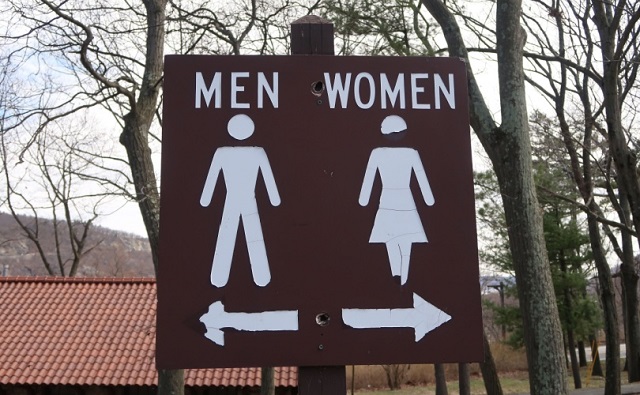Alberta
Calgary human trafficking suspect preyed upon young, vulnerable teens

From the Alberta Law Enforcement Response Team (ALERT)
A 21-year-old Calgary man is facing numerous human trafficking-related charges following an ALERT investigation. The suspect allegedly targeted vulnerable teens girls and sexually exploited them.
ALERT Human Trafficking’s investigation revealed that teens girls in Calgary were being targeted by the accused. To date, one 15-year-old victim has been identified and ALERT is looking to speak with other people who may have information about this investigation.
“We believe the accused was targeting young, vulnerable teen girls, forcing them into sexual situations, directing their movements, advertising sexual services, and taking their money,” said Cpl. Wayne Williams, ALERT Human Trafficking.
The victim is receiving necessary support and resources. ALERT has a Safety Network Coordinator embedded within their unit to provide enhanced supports to survivors.
On May 18, 2023, Benjamin Loewen, a 21-year- old from Calgary, was charged with the following:
- Sexual interference;
- Material benefit from sexual services of a person under 18;
- Drug trafficking;
- Making child pornography;
- Distribution of child pornography; and
- Extortion by threats.
He has been released from custody as he awaits his next court appearance on June 16, 2023.
“It is our understanding that this has been occurring for the past year and we have reason to believe that he may have exploited others. We want to reassure other survivors that it is safe to come forward and that their information is valuable,” Cpl. Williams added.
ALERT is working with Calgary Police Service’s child abuse unit on the investigation, which began in March 2023.
ALERT encourages anyone who believes they are a victim of sexual assault or abuse to report it to police. Victims of sexual assault can report it to the Calgary Police Service by calling 403-266-1234, or 9-1-1 if they are in immediate danger. There is no time limit on how long a victim has to report a sexual assault in Canada.
ALERT was established and is funded by the Alberta Government and is a compilation of the province’s most sophisticated law enforcement resources committed to tackling serious and organized crime.
Alberta
Alberta government should eliminate corporate welfare to generate benefits for Albertans

From the Fraser Institute
By Spencer Gudewill and Tegan Hill
Last November, Premier Danielle Smith announced that her government will give up to $1.8 billion in subsidies to Dow Chemicals, which plans to expand a petrochemical project northeast of Edmonton. In other words, $1.8 billion in corporate welfare.
And this is just one example of corporate welfare paid for by Albertans.
According to a recent study published by the Fraser Institute, from 2007 to 2021, the latest year of available data, the Alberta government spent $31.0 billion (inflation-adjusted) on subsidies (a.k.a. corporate welfare) to select firms and businesses, purportedly to help Albertans. And this number excludes other forms of government handouts such as loan guarantees, direct investment and regulatory or tax privileges for particular firms and industries. So the total cost of corporate welfare in Alberta is likely much higher.
Why should Albertans care?
First off, there’s little evidence that corporate welfare generates widespread economic growth or jobs. In fact, evidence suggests the contrary—that subsidies result in a net loss to the economy by shifting resources to less productive sectors or locations (what economists call the “substitution effect”) and/or by keeping businesses alive that are otherwise economically unviable (i.e. “zombie companies”). This misallocation of resources leads to a less efficient, less productive and less prosperous Alberta.
And there are other costs to corporate welfare.
For example, between 2007 and 2019 (the latest year of pre-COVID data), every year on average the Alberta government spent 35 cents (out of every dollar of business income tax revenue it collected) on corporate welfare. Given that workers bear the burden of more than half of any business income tax indirectly through lower wages, if the government reduced business income taxes rather than spend money on corporate welfare, workers could benefit.
Moreover, Premier Smith failed in last month’s provincial budget to provide promised personal income tax relief and create a lower tax bracket for incomes below $60,000 to provide $760 in annual savings for Albertans (on average). But in 2019, after adjusting for inflation, the Alberta government spent $2.4 billion on corporate welfare—equivalent to $1,034 per tax filer. Clearly, instead of subsidizing select businesses, the Smith government could have kept its promise to lower personal income taxes.
Finally, there’s the Heritage Fund, which the Alberta government created almost 50 years ago to save a share of the province’s resource wealth for the future.
In her 2024 budget, Premier Smith earmarked $2.0 billion for the Heritage Fund this fiscal year—almost the exact amount spent on corporate welfare each year (on average) between 2007 and 2019. Put another way, the Alberta government could save twice as much in the Heritage Fund in 2024/25 if it ended corporate welfare, which would help Premier Smith keep her promise to build up the Heritage Fund to between $250 billion and $400 billion by 2050.
By eliminating corporate welfare, the Smith government can create fiscal room to reduce personal and business income taxes, or save more in the Heritage Fund. Any of these options will benefit Albertans far more than wasteful billion-dollar subsidies to favoured firms.
Authors:
Alberta
Official statement from Premier Danielle Smith and Energy Minister Brian Jean on the start-up of the Trans Mountain Pipeline

-

 Opinion1 day ago
Opinion1 day agoClimate Murder? Media Picks Up Novel Legal Theory Suggesting Big Oil Is Homicidal
-

 Energy14 hours ago
Energy14 hours agoNet Zero’s days are numbered? Why Europeans are souring on the climate agenda
-

 Bruce Dowbiggin1 day ago
Bruce Dowbiggin1 day agoIt Gets Late Early These Days: Time To Bounce Biden & Trudeau?
-

 Environment2 days ago
Environment2 days agoClimate Alarmists Want To Fight The Sun. What Could Possibly Go Wrong?
-

 Addictions1 day ago
Addictions1 day agoCity of Toronto asks Trudeau gov’t to decriminalize hard drugs despite policy’s failure in BC
-

 Business2 days ago
Business2 days agoWhen politicians gamble, taxpayers lose
-

 International2 days ago
International2 days agoU.S. birth rate hit record low last year, signaling surge in childlessness
-

 Opinion14 hours ago
Opinion14 hours agoQuebec’s ban on gender-neutral bathrooms in schools is good news









